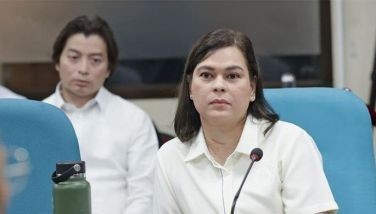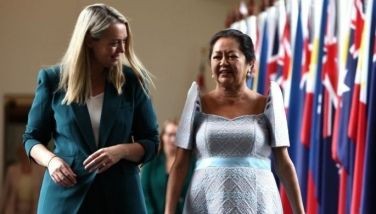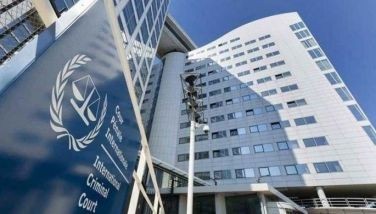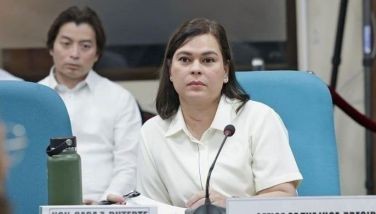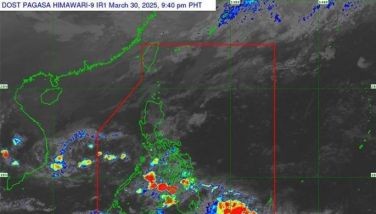PETA uses theater arts as a force for social change
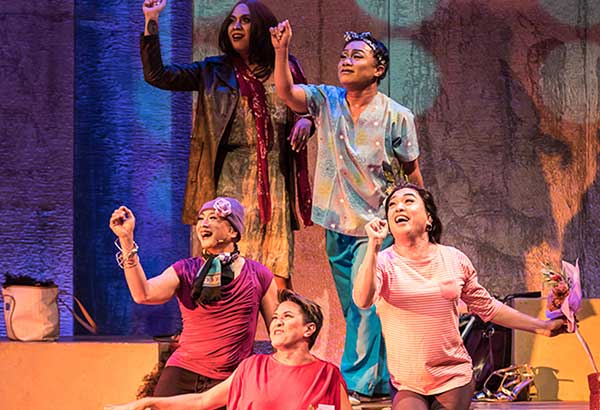
PETA’s original hit musical Care Divas tells the story of five transgender OFWs who work as caregivers by day and performers by night.
MANILA, Philippines - More than just a theater group, the Philippine Educational Theater Association (PETA) uses the power of the arts to raise awareness and empower communities to bring forth social change.
For this reason, the Ramon Magsaysay Award Foundation (RMAF) has recognized PETA for its “bold, collective contributions in shaping the theater arts as a force for social change, its impassioned, unwavering work in empowering communities in the Philippines, and the shining example it has set as one of the leading organizations of its kind in Asia.”
The PETA is the lone organization among this year’s winners of the Ramon Magsaysay Awards.
The RMAF has cited two of PETA’s major programs: the Greater Mekong Sub-region Partnership and the Lingap Sining (Nurturing Through the Arts).
The Greater Mekong Sub-region Partnership has mobilized, mentored and supported performing artists from Cambodia, Laos, Myanmar, Thailand, Vietnam and southern China to execute advocacy work that tackle issues on gender, health, sexuality and HIV-AIDS through theater and performing arts.
The PETA took the lead in running the campaign from 2005 to 2010.
In 2014, PETA launched the Lingap Sining program, which provides psychosocial relief to the survivors of Typhoon Yolanda in Leyte.
Originally called “Nurturing Hearts Through the Arts,” the Lingap Sining initiative is a culturally grounded, participatory program that uses theater arts to educate and advocate community-managed disaster risk reduction in Leyte.
PETA conducted interactive workshops in eight barangays and 13 schools in the municipalities of Palo and Dulag, where Yolanda survivors were engaged in psychosocial support that helped them process their experience.
The campaign “continuously creates more awareness for high-risk communities to lower vulnerabilities, strengthen their capacities, and calls for rebuilding towards a sustainable future,” PETA said.
Other major programs of PETA include the Kalinangan Ensemble, a repertory and performing arm; the School of People’s Theater, a training arm that organizes year-round workshops; Theater Center Program, in charge of line productions, designing and managing special events; and Advocating Rights to Safety Zone, a performance and training program that uses creative arts to advocate for positive discipline as an alternative to corporal punishment.
PETA was established in 1967 with the aim of “developing a new and liberating theater pedagogy that would lead to the creation of original Filipino dramaturgy at both professional and community levels.” It paved the way for the birth of the national theater movement in the Philippines.
PETA was also one of the groups that stood up against the Marcos dictatorship and staged theater as a medium for protest and conscientization during martial law.
Collectively known as “artists-teachers,” PETA members “step out of the artistic confines of a conventional theater ensemble into the arena of development work, where one reinvents theater not only as a means of self-expression but as a venue for imagining, proposing and actualizing change,” the RMAF said.
The 50-year-old theater organization has produced 540 original, translated or adapted plays, reached an audience of millions and tapped 4,650 artists, school teachers, community leaders and development workers.
The PETA, former Philippine Economic Zone Authority director-general Lilia de Lima and individual awardees from Indonesia, Japan, Singapore and Sri Lanka will be formally conferred the prestigious 2017 Ramon Magsaysay Award on Aug. 31 at the Cultural Center of the Philippines.
- Latest
- Trending



















